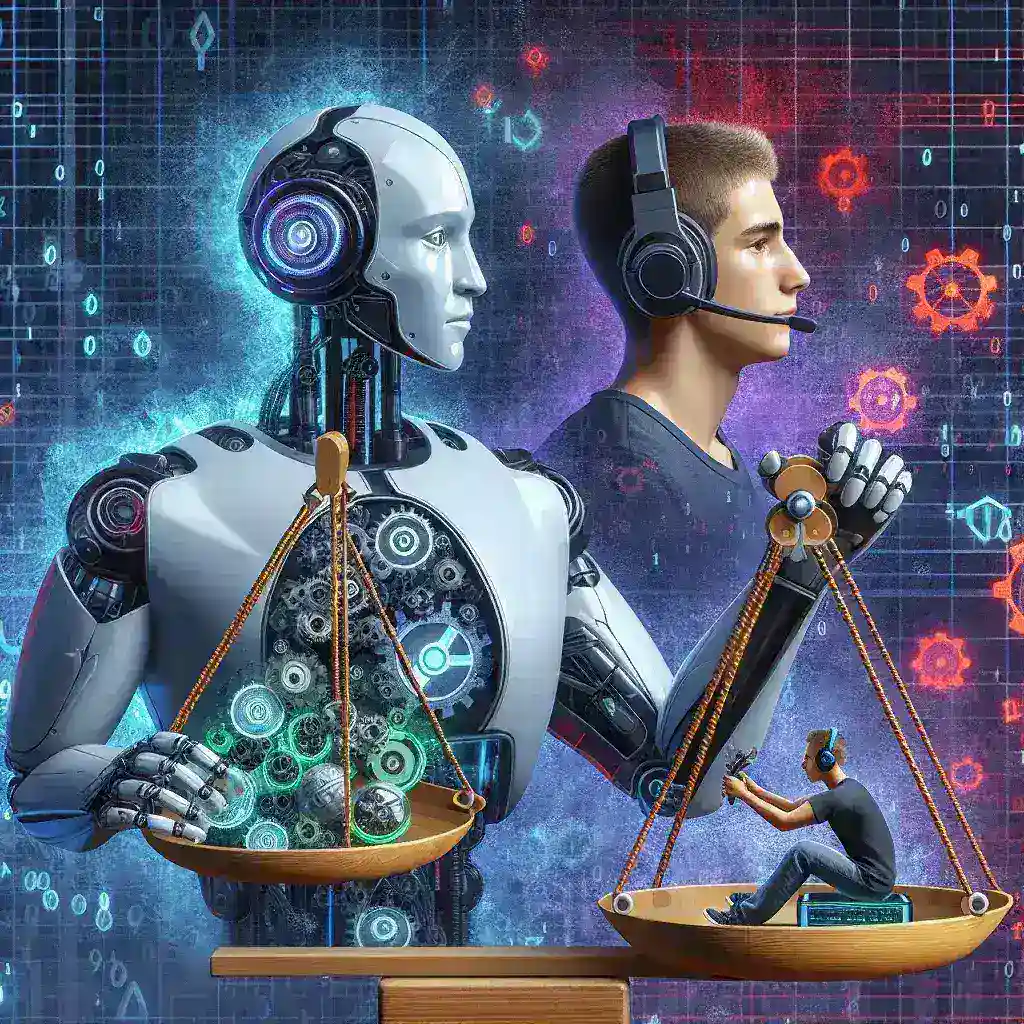Introduction
As the world of gaming evolves, the need for more engaging and personalized experiences has led developers to explore innovative technologies. One of the most transformative advancements in this realm is the integration of adaptive AI opponents. These intelligent systems dynamically adjust difficulty levels based on player skill development, ensuring that players are continually challenged while enjoying their gaming experience. This article delves into the concept of adaptive AI in gaming, its historical context, benefits, and its impact on player engagement.
The Evolution of Gaming Difficulty
The concept of difficulty in video games has undergone significant changes since the early days. Initially, games were designed with fixed difficulty levels, often leading to frustration for many players. As technology advanced, developers began to experiment with various methods to create a more balanced and enjoyable gaming experience. Adaptive AI emerged as a revolutionary solution, allowing games to adjust their challenges in real-time based on the player’s performance.
Historical Context
In the early 1980s, video games often had a single difficulty setting. Players either succeeded or failed based on their skills, leading to a steep learning curve and discouragement for many. As gaming technology evolved, so did the complexity of game designs. The introduction of AI algorithms started with simple pattern recognition and progressed to sophisticated systems capable of learning from player behavior.
By the late 1990s and early 2000s, games began to incorporate elements of dynamic difficulty adjustment (DDA). Titles such as Resident Evil 4 and Left 4 Dead pioneered the idea of modifying difficulty based on player performance. This shift marked the beginning of a new era in gaming, where adaptive AI could analyze player actions and adjust challenges accordingly.
Understanding Adaptive AI
At its core, adaptive AI utilizes machine learning algorithms to monitor and analyze player behavior. This information allows the game to tailor its difficulty settings in real-time. The system can track various metrics, such as player accuracy, decision-making speed, and success rates in completing tasks. By doing so, adaptive AI can create a dynamic gameplay experience that keeps players engaged and motivated.
How Adaptive AI Works
Adaptive AI systems typically rely on various techniques including:
- Player Performance Metrics: Tracking key performance indicators like kill/death ratios, completion time, and resource management.
- Behavioral Analysis: Observing player strategies, choices, and patterns to predict future actions.
- Difficulty Scaling: Automatically adjusting the strength, speed, and intelligence of AI opponents based on player interactions.
Benefits of Adaptive AI in Gaming
The integration of adaptive AI opponents comes with numerous advantages that enhance the overall gaming experience:
1. Personalized Gameplay
Adaptive AI creates a unique experience for each player by adjusting difficulty based on individual skill levels. This personalization ensures that the game remains engaging and enjoyable, regardless of the player’s experience.
2. Enhanced Learning Curve
As players develop their skills, adaptive AI provides appropriate challenges that encourage improvement without overwhelming them. This gradual escalation of difficulty fosters a sense of achievement.
3. Increased Retention
Games that adapt to player skill levels often see increased player retention rates. When gamers feel consistently challenged yet capable of progressing, they are more likely to continue playing.
4. Competitive Balance
Adaptive AI can balance competitive multiplayer environments by adjusting the skill of AI opponents in response to human player performance. This ensures that matches remain fair and competitive.
Challenges of Implementing Adaptive AI
Despite its benefits, integrating adaptive AI into games isn’t without challenges:
1. Complexity of Algorithms
Creating algorithms that accurately assess player skills and adjust difficulty without disrupting gameplay can be complex and time-consuming for developers.
2. Balancing Difficulty Levels
Finding the right balance in difficulty adjustment is crucial. If a game becomes too easy or too hard, it may frustrate players, defeating the purpose of adaptive AI.
3. Player Perception
Players might not always appreciate the intention behind adaptive AI adjustments. Some may perceive difficulty adjustments as unfair or manipulative, leading to negative experiences.
Future Predictions for Adaptive AI in Gaming
The future of adaptive AI in gaming looks promising, with several trends and predictions emerging:
1. Greater Integration with Virtual Reality
As virtual reality (VR) technology continues to advance, adaptive AI will likely play a crucial role in creating immersive experiences that respond to players’ movements, decisions, and emotional states in real-time.
2. More Sophisticated Learning Algorithms
Advancements in machine learning will enable even more sophisticated AI systems capable of understanding complex human behaviors, leading to more nuanced gameplay adjustments.
3. Cross-Platform Adaptation
Expect adaptive AI to adapt not just to individual players, but also across different platforms. This could lead to seamless gameplay experiences where player skills are recognized regardless of the device used.
Real-World Examples of Adaptive AI in Games
Several games have successfully implemented adaptive AI systems, showcasing the potential of this technology:
1. Shadow of the Tomb Raider
This game employs a dynamic difficulty system that adjusts challenges based on the player’s performance, ensuring that veteran players face tougher opponents while newcomers receive additional support.
2. Forza Motorsport
In the Forza series, the AI adapts to the player’s driving style, enhancing the experience by providing realistic competition while allowing players to improve their skills over time.
3. Alien: Isolation
The AI in this survival horror game learns from the player’s actions, creating a unique and terrifying experience where the alien opponent becomes increasingly unpredictable.
Conclusion
Adaptive AI opponents represent a significant leap forward in the gaming industry, offering players an experience that is both challenging and tailored to their individual skill development. As this technology continues to evolve, gamers can expect even more personalized adventures that keep them engaged and motivated. Through a combination of historical context, real-world applications, and future predictions, it is clear that adaptive AI will play a vital role in shaping the future of gaming.


Leave a Reply